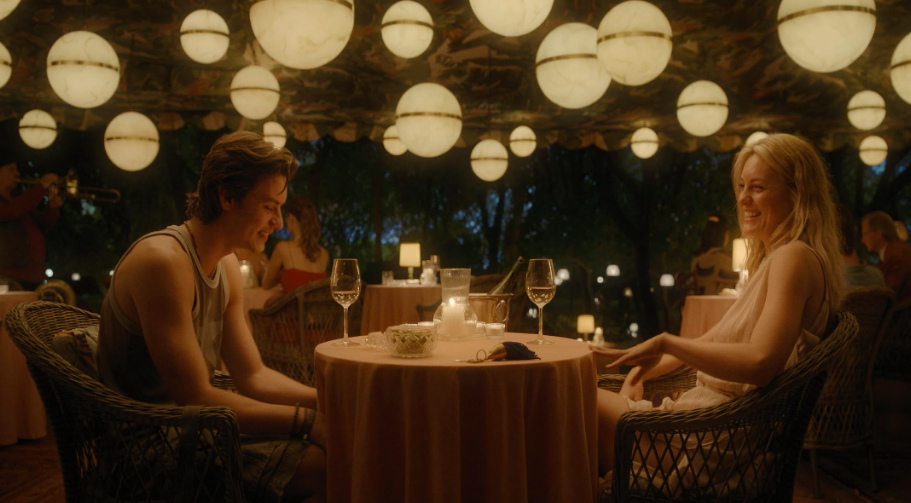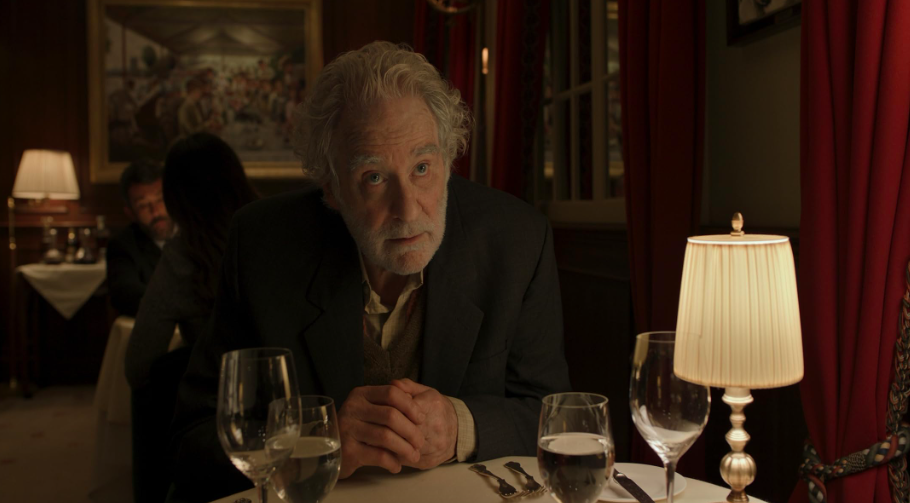
The new Apple TV+ original series written and directed by Alfonso Cuarón — starring Cate Blanchett and Sasha Baron Cohen — premiered at the 81st Venice Film Festival. This marks the return of the filmmaker to the Lido, after opening the kermesse with Gravity in 2013 and winning the Golden Lion with Roma in 2018. Disclaimer is based on the novel of the same name by Renée Knight and explores the thin line that separates fictionalised truth and smothered authenticity.
Catherine Ravenscroft (Cate Blanchett) is an acclaimed journalist who has built her reputation by exposing the misdeeds and transgressions of others. A few days after winning a major award, she receives the book The Perfect Stranger, in which the author recounts in detail a terrible event from Catherine’s past, which has generated dark secrets. This event can jeopardise her marriage to Robert (Sasha Baron Cohen) and her fragile relationship with her son Nicholas (Kodi Smit-McPhee).
Throughout the seven episodes we are nourished with a detailed narration from the perspective of Nancy (Lesley Manville) and Stephen Brigstocke (Kevin Kline). They are the parents of Jonathan (Louis Partridge), whose fate tragically interwove with that of a younger Catherine (Leila George), on the Italian beach of Forte dei Marmi.

Disclaimer is ruthless and brutal in exploring the extent to which humanity becomes self-absorbed in the information it gets fed. Manipulation is the great protagonist of this Apple series, which coalesces the genres of the psychological thriller, the crime mystery, and the family drama.
Alfonso Cuarón provides his personal insight into Orwellian culture where the accused automatically becomes guilty, by means of media shaming and consequent public condemnation. The anthropological exploration in the series is overwhelming. Disclaimer not only possesses a Hitchcockian flair, but also shines a light on how we tend to endorse a sensationalised story without questioning its legitimacy. The new creation of the Oscar-winning Mexican director plays with narrative arcs to befuddle spectators, taking its theme to the extreme until the revealing final episode.
The series could have very well been condensed into a feature film. It would have not lost in suspense, surprise or social commentary. Nevertheless, this expanded version of the cinematic storytelling does allow viewers to enter each character’s frame of mind and gain a more profound insight into their course of action. Each actor is superlative in his or her role, bringing to life the multifaceted traits of human nature, whether they concern a mourning parent, a shamed victim or someone whose judgement is clouded by prejudice.

Appearances may be deceiving. Shakespeare had one of his characters in The Merchant of Venice describe this impeccably: So may the outward shows be least themselves: The world is still deceived with ornament. In law, what plea is so tainted and corrupt, But, being seasoned with a gracious voice, Obscures the show of evil?. Likewise, Cuarón’s adaptation of Renée Knight’s publication demonstrates how society can be tricked into misbelief. But only those who have lived the experience first-hand are aware of what truly happened.
Consequently, the essence of the series lies in its title ‘Disclaimer,’ i.e. a statement that withdraws responsibility. Every episode is preceded by the incipit “Beware of narrative and form, their power can bring us closer to the truth. But because of our own deeply held beliefs and the judgements that we make, they can also be a weapon with a great power to manipulate.” Despite this warning being shown at the beginning of each episode, viewers fall for the same trap of the characters. They are led to believe one thing as opposed to another, proving how people favour the first version of a story, even more so if it’s titillating and contumelious.
Cinema is par excellence the tool of make believe and Disclaimer epitomises how you may twist and turn a narrative, according to how the various pieces of the story are assembled, and most importantly by whom. The narrator is the one who holds the power, and dethroning that individual becomes the ultimate act of justice to make the truth emerge.
Final Grade: B+
If you like the review, share your thoughts below!
Check out more of Chiara’s articles.
Photos Courtesy of Apple TV+

